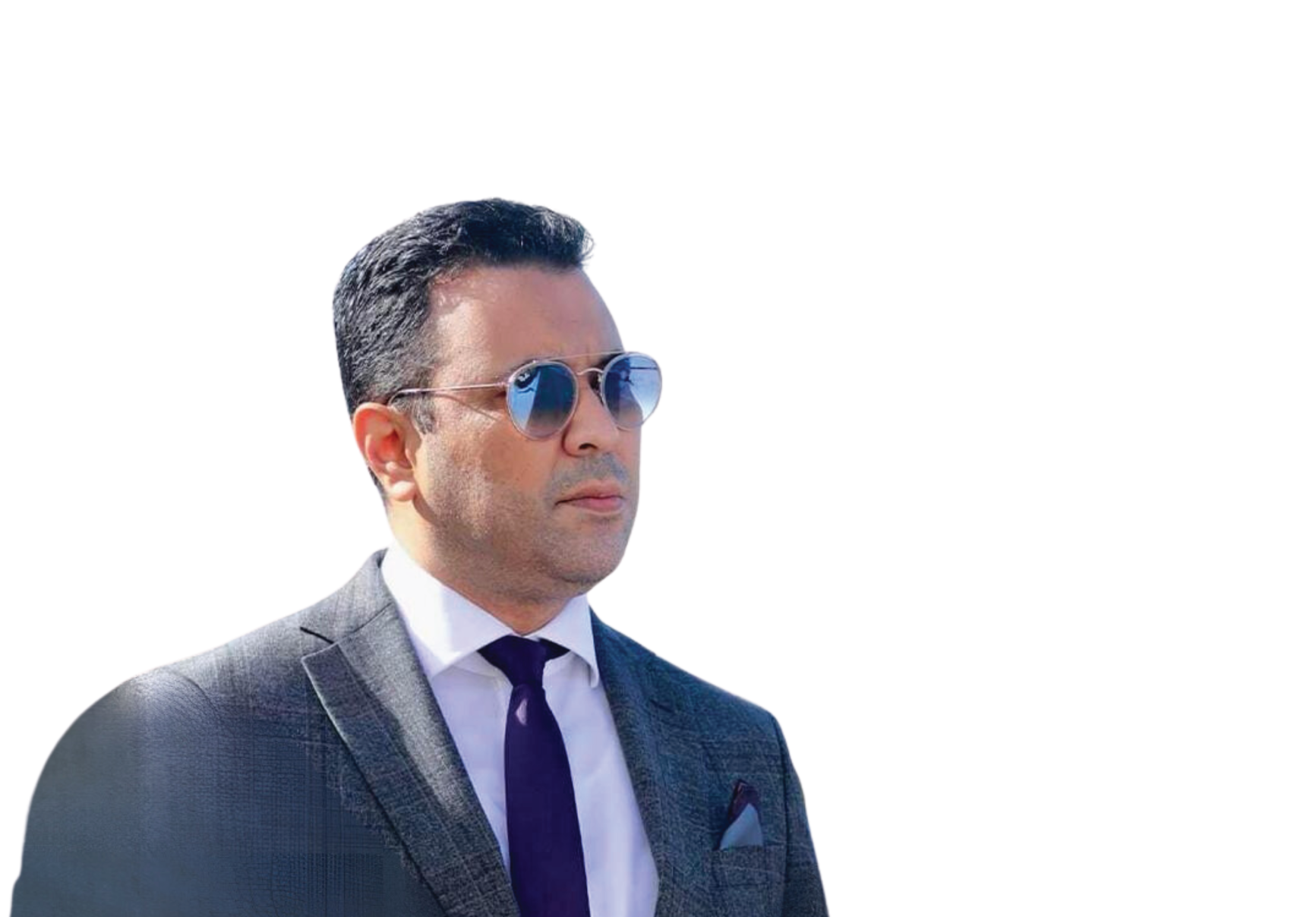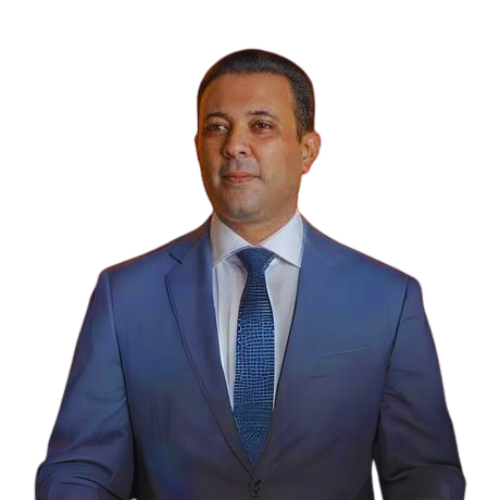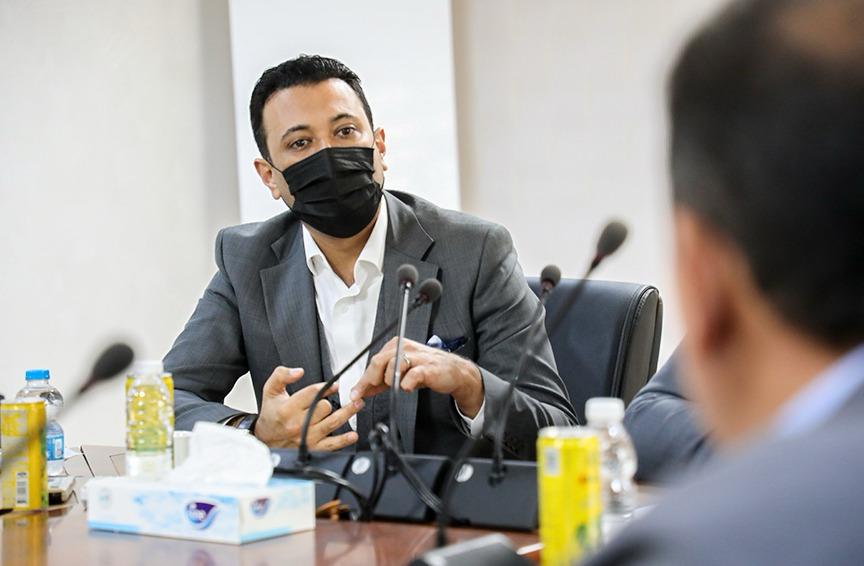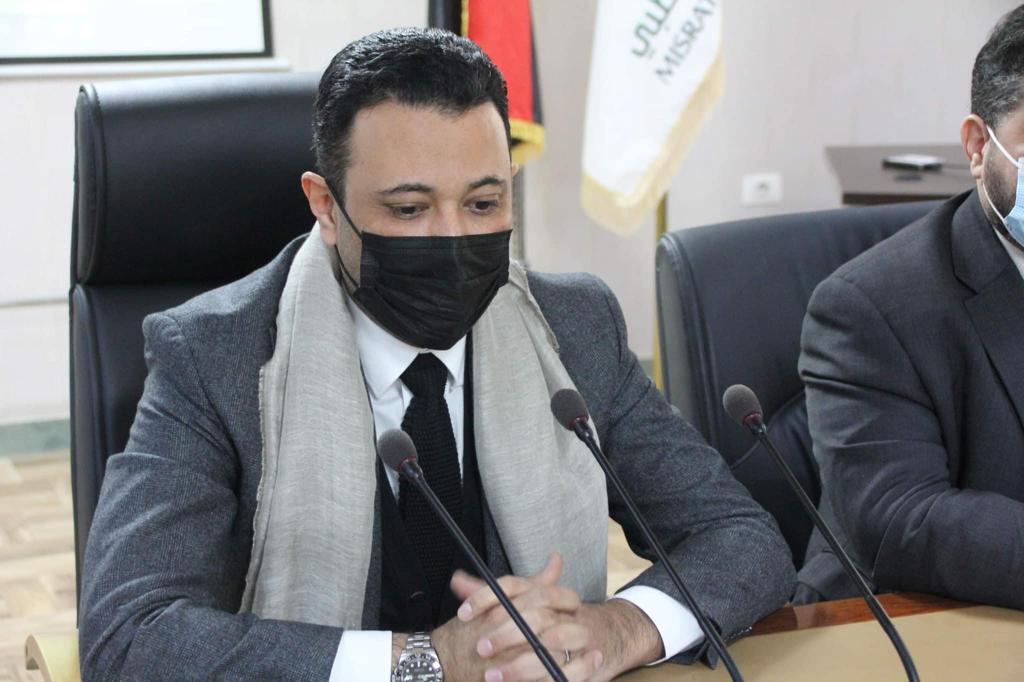Vision
Eyhab Albira is a young, dynamic, and visionary politician who is committed to bringing the change that Libyans have been yearning for since the ouster of the former Gaddafi regime in 2011.

Eyhab Elbira believes that Libya has been in a state of instability for a long time and that it needs a new vision. He points out that prior to the 2011 uprising, Libyans lived under the regime of Muammar Gaddafi and were exposed only to his ideologies and thoughts. He is motivated to effect change due to his own background, growing up in a humble family where his father was known for his community service and the positive impact he had on many Libyans. Eyhab Elbira lost his father when he was only one year old, so he had to shoulder responsibilities at both family and social levels.
Eyhab Elbira acknowledges the multiple crises facing Libya and strongly believes that they can be resolved through decentralization and broader dialogue that brings all warring factions together. His immediate priorities are:
Decentralization
Libya requires fundamental administrative transformation from centralization to decentralization.
Achieving peace
Achieving a peace accord involving Libyans across the board to move to a new phase.
Elections
In Libya, elections are pivotal for politicians, shaping the nation's direction and fostering democratic progress. Every vote counts.
Resolving Libya’s Longstanding Political Crisis
Libya has been in a state of political crisis for a prolonged period since the overthrow of the Ghaddafi regime in 2011. The country's lack of experience with democracy and the political leadership's immaturity has led to rival forces taking control of the country, leading to dysfunctional state institutions and centralized powers that deprive municipalities of many amenities. Moreover, foreign interventions have further complicated the situation in Libya, with the country now divided into two governments, one in the West and the other in the East. The United Nations has been making efforts to mediate between the warring factions, but a resolution remains elusive.

Eyhab Elbira remains hopeful
Despite the bleak situation, Mr. Eyhab Elbira remains hopeful that the Libyan crisis can be resolved. He believes that the country’s past history of reconciliation after wars and internal conflicts can serve as a foundation for a peaceful resolution. However, he emphasizes the need for an accord that can achieve calm among Libyans, referring to it as a “code of conduct.”
Eyhab Elbira remains hopeful
Despite the bleak situation, Mr. Eyhab Elbira remains hopeful that the Libyan crisis can be resolved. He believes that the country's past history of reconciliation after wars and internal conflicts can serve as a foundation for a peaceful resolution. However, he emphasizes the need for an accord that can achieve calm among Libyans, referring to it as a "code of conduct."

Equal distribution of power and wealth
Eyhab Elbira suggests that equal distribution of wealth is the key to resolving the crisis in Libya. The centralization of power has had an adverse impact on all aspects of life in Libya, and decentralization is the answer to all these problems. By decentralizing power, wealth will trickle down to municipalities, providing benefits to those who live within them. Health, education, and the economy will be available in municipalities, while the central government will carry out major projects. This will also provide accountability, which is currently lacking in Libya. The executive and oversight authorities are all in Tripoli, making it impossible to hold them accountable.

Equal distribution of power and wealth
Eyhab Elbira suggests that equal distribution of wealth is the key to resolving the crisis in Libya. The centralization of power has had an adverse impact on all aspects of life in Libya, and decentralization is the answer to all these problems. By decentralizing power, wealth will trickle down to municipalities, providing benefits to those who live within them. Health, education, and the economy will be available in municipalities, while the central government will carry out major projects. This will also provide accountability, which is currently lacking in Libya. The executive and oversight authorities are all in Tripoli, making it impossible to hold them accountable.


Caution against the idea of dividing Libya
Eyhab Elbira is against the idea of dividing Libya into three entities, warning that certain countries are working towards splitting the country. He is in favor of a federal Libya but is against dividing it into three countries. He notes that the country is currently divided into East South, Fajr, and Karama, which fuel conflicts.
Caution against the idea of dividing Libya
Eyhab Elbira is against the idea of dividing Libya into three entities, warning that certain countries are working towards splitting the country. He is in favor of a federal Libya but is against dividing it into three countries. He notes that the country is currently divided into East South, Fajr, and Karama, which fuel conflicts.

Despite all the challenges, dialogue is instrumental
Eyhab Elbira acknowledges that there have been discussions about resolving the existence of two rival governments in Libya. However, there are five competing interest groups in Libya, including a government in the East, a government in the West, the State Council, the Presidential Council, and the Central Command of the army. Each group is keen to assert itself, making it difficult to reach a resolution. Nevertheless, Elbira believes that the crisis can be resolved through a broader dialogue.
Despite all the challenges, dialogue is instrumental
Eyhab Elbira acknowledges that there have been discussions about resolving the existence of two rival governments in Libya. However, there are five competing interest groups in Libya, including a government in the East, a government in the West, the State Council, the Presidential Council, and the Central Command of the army. Each group is keen to assert itself, making it difficult to reach a resolution. Nevertheless, Elbira believes that the crisis can be resolved through a broader dialogue.
